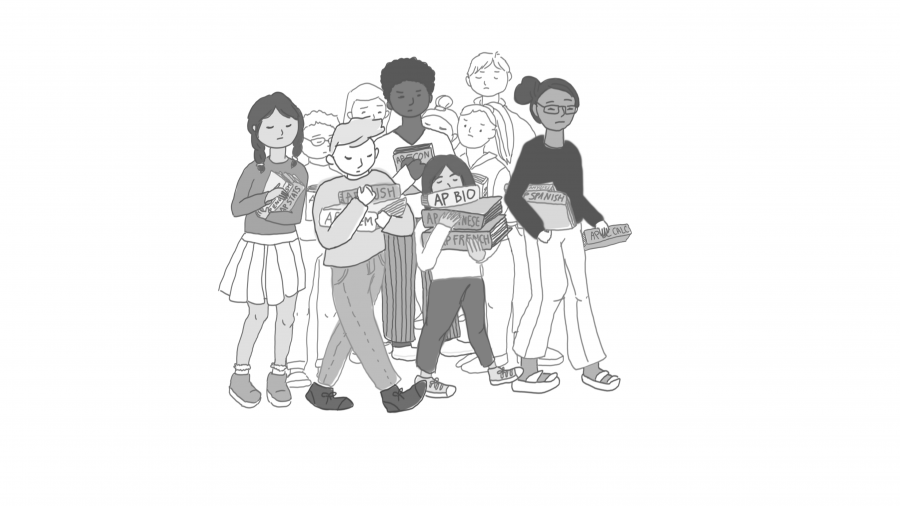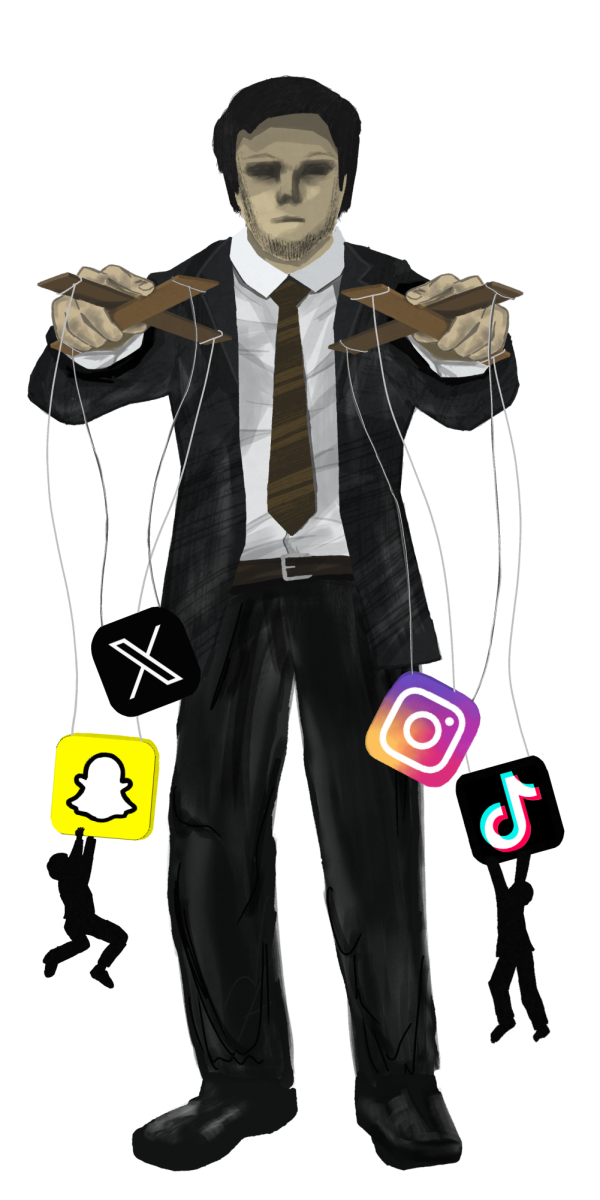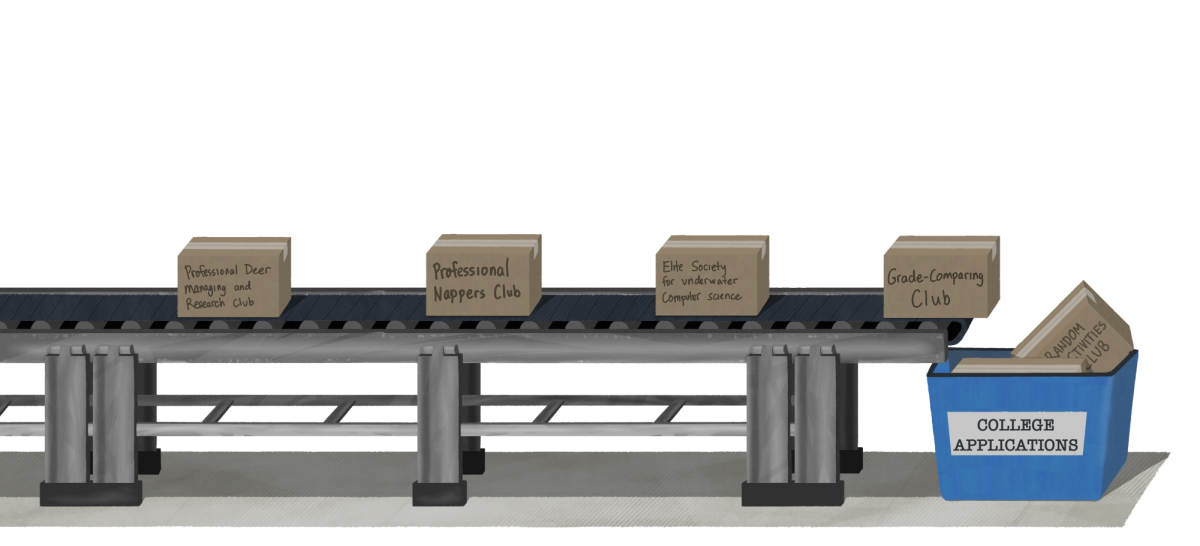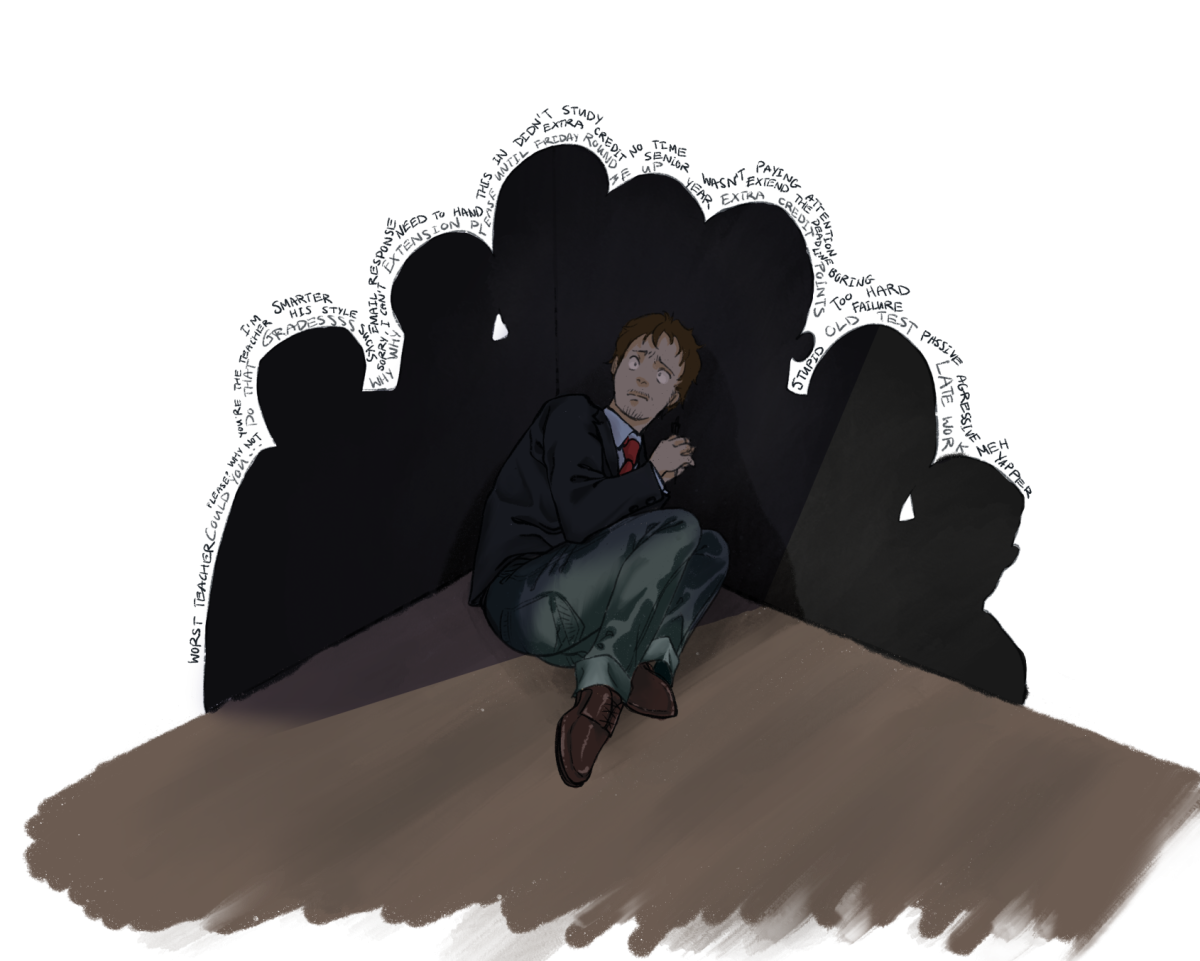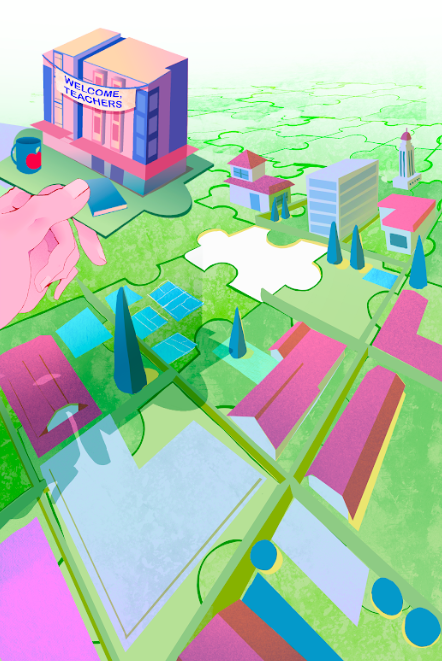When members of the Palo Alto community think of Gunn, many associate the school with difficult courses and students under constant stress. In the past, students have blamed the stress of school on teachers and parents, citing loads of homework and high expectations for grades and colleges as the roots of their stress. What our community does not realize, however, is that the students are mainly the ones who perpetuate this stress. The constant need to compare classes and grades to their peers’ is one of the many ways Gunn students are creating a toxic and stressful environment.
Many students blame teachers for giving out too much homework and not collaborating with each other on test and project dates. Hearing fellow students complain about their teachers and course loads perpetuates a never-ending cycle of students not realizing they are too contributing to this toxic environment. By complaining about classes and teachers, students are creating a skewed view of the amount of work Gunn students have, when in reality, each person’s experience is relative. There are other factors that may go into the amount of time spent on homework outside of class, and some students may not take these factors into consideration. Hear- ing their peers talk about how much work they have to do may cause other students to become stressed out because they feel that they are not doing enough work. Many students have also spoken out against the administrators by saying that they are not taking the right steps to reduce the stress in the Gunn community. This, again, is just students using a third party as the scapegoat for the stresses they themselves cause. When administrators are presenting information about selecting courses for the following year, they promote one piece of advice: only take two Advanced Placement (AP) classes. Many students choose to forgo this advice and load their schedule with four, five and even six AP classes. This “norm” of taking more than two AP classes feeds into the unhealthy environment at Gunn. Upon hearing that their friends are taking multiple AP classes, students may feel inclined and pressured to take more than the recommended two. Students are in constant competition with each other and choose harder classes to keep up with other students.
Administrators have tried to help prevent the amount of stress students experience. These attempts have not been as effective as they could have been because students decide to disregard their advice. Besides the tip to take only two AP classes, administrators have also encouraged participation in enjoyable extracurriculars and plenty of sleep. By participating in clubs, sports or music, students are able to let go of their stress and enjoy their time doing something they love. Researchers and administrators advise students to get nine to 9.5 hours of sleep per night. According to the California Healthy Kids Survey, only ten percent of 9th and 11th graders at Gunn get more than nine hours of sleep per night. Students are disregarding the advice to sleep more, a choice which can also perpetuate toxicity. Students brag about how little sleep they received the previous night because of the amount of work they needed to complete. Upon hearing this, other students may think this is what they need to do to get all of their work done. These skewed representations of Gunn students are what continue to hurt the school environment and add stress to students’ daily lives.
Parents of Gunn students have received false accusations over the years for pushing students too hard, thus creating stress to meet their parents’ standards. Students blame their parents because they feel that they are pressuring them to take harder classes and get straight A’s to be able to get into the best colleges in the country. In reality, parents just want what is best for their children. In most cases, parents push their children because they know what they are capable of and want their children to succeed. Students use their parents as a scapegoat for their stress because they don’t know where else to turn. Students say that their parents made them take harder classes or more extracurriculars, when in reality this is mostly untrue. In most cases, students are the ones that are packing their schedules full of activities. Overall, the stories told by Gunn students paint their parents in a negative light, when in reality, parents care about their children. If students continue to blame their parents and not take steps to relieve their own stress, they are just making it harder for themselves. at stress will continue to build up and can lead to unhealthy and negative effects.
Though students’ stress will not fully disappear, it can be controlled by several steps. Research has shown that extracurriculars and sleep limit stress. Other positive activities such as spending time in nature or with friends and family can also help relieve stress. Encouraging students to not share their grades, schedules or course loads is another way to help prevent unnecessary stress in the Gunn community. Regulating the Course Selection Q&A Facebook group and the posts that are shared can also limit the stress they are creating for themselves and their peers. By educating students on the stress they are creating for them- selves through assemblies or lessons in Social Emotional Literacy and Functionality (SELF), students may become more aware of it and the effects it has on themselves and those around them.



